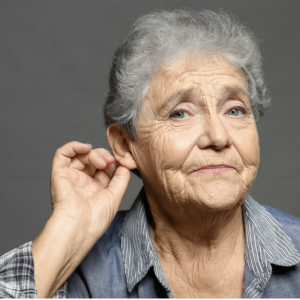Sound Off: New Efforts To Reverse Age-Related Hearing Loss

Sound Off: New Efforts To Reverse Age-Related Hearing Loss
May 11, 2022
It’s definitely one of the less pleasant aspects of growing older: Slowly but surely when you’re in a crowd or watching tv, you realize you’re not hearing everything being said. Maybe you miss every third or fourth word; Maybe it sounds like everyone is mumbling; Maybe you’ve started reading lips (when masks are not worn) so you can better ascertain what’s being said. According to the CDC, among adults 55-64, 8.5% have disabling hearing loss. But as you get older, those numbers get bigger: for those 65-74, 25% have disabling hearing loss. And for the over-75 crowd, the number shoots up to 50%. In the US, estimates are that more than 40 million people suffer from hearing loss along with hundreds of millions worldwide. So it’s a significant problem, one bound to grow worse as the population ages. And because hearing loss is also associated with such health problems as social isolation, less physical exercise, and even a higher risk of dementia, it’s something everyone needs to pay attention to. To review our previous posts addressing hearing loss, click here.
Hearing aids can help and if you find that’s the route you need to go, best to first check out this recent Consumer Reports rating of the Best and Worst Hearing Aid Brands and Retailers. It could also be that your environment is part of the problem and getting the advice and input of an acoustical consultant might be worth the money. According to a recent article in Next Avenue, there may be lots of reasons that your home environment works against your need to hear better- you may have high ceilings, open floor plans, or other aesthetics that don’t sufficiently absorb sound and leave you listening to echoes or annoying sound reverberations. Things can be done to make your environment more “hearing accessible” so there’s no need to suffer in silence- literally.
But perhaps the most exciting news to report regarding hearing loss is the publication of new research aimed directly at restoring lost hearing due to aging. First, out of Northwestern University Feinberg School of Medicine, is a study published in Nature focusing on the tiny hair cells in the cochlea. According to the lead researcher Jaime García-Añoveros, “The most common degenerative condition in humans is the loss of the hair cells of the cochlea. They are not produced normally after we’re born so that means deafness that occurs with age is irreversible.” The tiny hair cells in the outer ear transmit sound vibrations to hair cells in the inner that then carry the info to the brain via nerves. Currently, when hair cells get damaged and die off you cannot regenerate them. This new research is focused on ways to regenerate outer and inner hair cells. Animal research to date is getting closer to that goal, though the practical application of this research is probably still many years away. For more insights into this scientific study, cup your ear and read here.
Also focusing on these hair cells but perhaps closer to being available to the public, is work that comes out of an offshoot of MIT, called Frequency Therapeutics. According to a press report from MIT, Frequency Therapeutics has developed a drug candidate that stimulates the growth of hair cells in the inner ear. There have been several clinical trials involving humans that focused on speech perception, with some participants receiving statistically significantly improved hearing after just one injection with this drug. While more research needs to be conducted, one of the researchers excitedly exclaimed, “I wouldn’t be surprised if in 10-15 years, because of the resources being put into this space and the incredible science being done, we can get to the point where reversing hearing loss would be similar to Lasik eye surgery, where you’re in and out in an hour or two and you can completely restore your vision.” Now that’s exciting news to hear! Find out more by clicking here.







